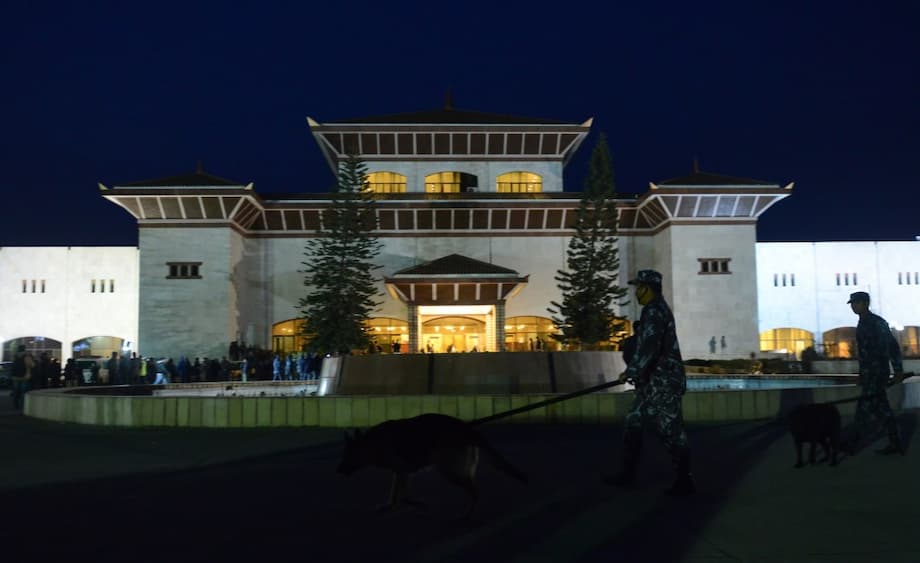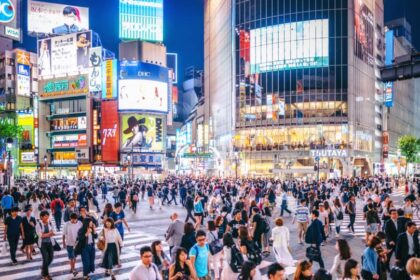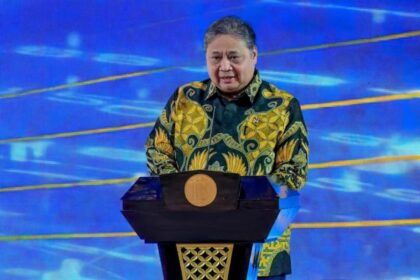Why Nepal moved to block Facebook, YouTube and X
Nepal has ordered internet providers to shut off access to 26 major social media platforms after the companies failed to register with the government within a set deadline. The Ministry of Communications and Information Technology directed the Nepal Telecommunications Authority to instruct telecom operators and internet service providers to restrict Facebook, Instagram, YouTube, X, Reddit, LinkedIn and other services. Officials say the move will help curb online hate, rumours and cybercrime. Media and rights groups say it will curb press freedom, limit access to information and reduce space for civic debate.
- Why Nepal moved to block Facebook, YouTube and X
- What exactly is being blocked
- How the registration rule took shape
- What the government says it is trying to fix
- Backlash from journalists, rights groups and the opposition
- Enforcement, access and the risk of over blocking
- Impact on daily life and the economy
- What the pending social media bill would add
- How Nepal’s approach compares with global regulation
- What to watch in the coming days
- Key Points
The registration rule stems from the Directives for Managing the Use of Social Networks, 2023. On August 17 the Supreme Court upheld the registration requirement as a way to address misinformation, while stopping short of ordering any shutdown. In late August the Cabinet gave foreign social media and streaming companies seven days to register, name a local contact person, appoint a grievance handler and designate a person responsible for self regulation. When the deadline expired without applications from most large platforms, the ministry moved to enforce the rule. Officials say access will be restored once a platform registers in Nepal.
TikTok and Viber have registered and remain available. Smaller services including Nimbuzz and Poppo Live are on the approved list, and two others have applied. Reports said some of the targeted platforms were still reachable for a time after the order, with enforcement expected from Thursday night as providers implemented their blocks. Nepal has an internet penetration rate above 90 percent, which means the shutdown reaches into daily communication, news and commerce for millions of users.
Communications and IT Minister Prithvi Subba Gurung defended the decision in comments reported by AFP.
We gave them enough time to register and repeatedly requested them to comply with our request, but they ignored this, and we had to shut their operations in Nepal.
What exactly is being blocked
The ministry’s order covers unregistered platforms that operate in Nepal. Authorities said providers must deactivate access to the services on the list until those companies complete registration with the ministry.
Which platforms are affected
Officials and news reports list Facebook, Instagram and WhatsApp from Meta, YouTube from Alphabet, X, Reddit, LinkedIn, Snapchat, Discord and WeChat among those targeted. The instruction covers a total of 26 platforms. Availability during the first day varied across networks as internet providers rolled out the blocks.
Which ones remain online
Five platforms had registered and were allowed to continue operating, according to officials: TikTok, Viber, WeTalk or Witk, Nimbuzz and Poppo Live. Two more, including Telegram and Global Diary, were said to be in process. Local media reported that WhatsApp briefly returned for users on Friday as providers fine tuned their filters. The ministry says any platform that completes registration will be reopened the same day.
How the registration rule took shape
The current standoff grows out of a 2023 directive that seeks to list any social network that operates in Nepal. It requires platforms to register with the Ministry of Communications and Information Technology, appoint a local contact and grievance handler, and designate a person who will be responsible for self regulation inside the country. On August 17 the Supreme Court upheld the registration rule on constitutional grounds and described it as a tool to curb misinformation. The court did not instruct the government to ban platforms that failed to register.
In late August the Cabinet instructed foreign social media and online streaming companies to apply within seven days. On September 4 the ministry ordered the Nepal Telecommunications Authority to tell telecom companies and internet providers to block access to those that failed to apply. A copy of the order indicates that access may be restored in stages if platforms begin the registration process.
What the government says it is trying to fix
Officials argue that the shutdown addresses specific harms. They cite the spread of fake accounts and fake identities, hate speech, online fraud, money laundering and threats to social harmony. They say global companies must be answerable to Nepali authorities and to local users when they host harmful or unlawful content. The requirements aim to create a clear point of contact for notices and complaints, which is part of a wider trend in tech regulation around the world.
Gajendra Kumar Thakur, the ministry spokesperson, described the approach when speaking to AFP.
Unregistered social media platforms will be deactivated today onwards.
The rule expects a minimal local presence and basic accountability. That includes a liaison for official notices, a grievance handler to resolve user complaints, and a person responsible for content self regulation. The ministry says these are standard conditions that many countries now seek from large online platforms.
Backlash from journalists, rights groups and the opposition
Press freedom advocates and civil society groups have condemned the decision. The Committee to Protect Journalists warned that the block would obstruct reporting and limit access to information that the public relies on for news.
Nepal’s sweeping ban on social media sets a dangerous precedent for press freedom. The government must immediately rescind this order and restore access to social media platforms, which are essential tools for exercising press freedom.
The Federation of Nepali Journalists criticized the move as a blow to press freedom and the public’s right to information. Digital rights campaigners say the measure will chill speech, disrupt the work of journalists and citizen reporters, and reduce transparency.
Bhola Nath Dhungana, president of Digital Rights Nepal, said the process and timing show a controlling approach.
It is not wrong to regulate social media, but we first need to have the legal infrastructure to enforce it. A sudden closure like this is controlling.
Political opposition figures also pushed back. Hit Raj Pandey, chief whip of CPN Maoist Centre, the main opposition party, warned of social disorder if closures persist.
If social media is shut down, the country will become chaotic. We oppose this decision.
Raman Jit Singh Chima, Asia Pacific policy director at Access Now, said the approach risks mimicking restrictive models.
This resembles censorship models seen in authoritarian regimes and is at odds with Nepal’s democratic aspirations.
Enforcement, access and the risk of over blocking
The order is implemented by telecom and internet providers. Network filters can rely on domain name blocking, IP blocking or deeper inspection of traffic. Rollouts typically occur in stages, which helps explain why some platforms remained reachable for several hours after the order, according to local and international reports.
Digital rights groups warn that broad technical measures can cause collateral effects. If a provider blocks a server that hosts multiple services, unrelated sites can be affected. Critics also point to the directive’s power to suspend services and order removals. They say such authority can pressure platforms to take down lawful content to keep access, which limits legitimate speech.
Impact on daily life and the economy
Nepalis are heavy internet and social media users. About 90 percent of the country uses the internet. Statcounter data indicates that among social media users, Facebook holds roughly 87 percent share in Nepal, with X at around 6 percent and YouTube at about 5 percent. Messaging services help families keep in touch across borders, which is especially important for a country with a large diaspora.
A separate survey cited by Nepali media found that 94 percent of smartphone users access YouTube and 92 percent use Facebook. That is a different measure from market share, but it shows how deeply these platforms are woven into daily routines. Small businesses market, sell and support customers through Instagram, Facebook and WhatsApp. Newsrooms distribute live streams and clips on YouTube. Content creators and television channels earn a share of advertising tied to views on YouTube. Nepali Times reports that many broadcasters get up to 20 percent of revenue this way, with more than 11 million people in Nepal watching YouTube content each day.
Given that dependence, even short interruptions can have immediate effects. Influencers and small shops lose reach. Journalists lose tools that help them verify events and speak to audiences. Families lose easy contact with loved ones abroad. The longer the shutdown lasts, the larger the economic and social cost.
What the pending social media bill would add
Parliament is considering a social media bill that would put many of these controls into law. The draft would require platforms to obtain operating permission and would bar companies that do not register. It would give authorities the power to order removal of posts officials deem indecent or misleading. It proposes heavy fines and prison terms of up to five years for spreading false information, and it seeks to curb anonymous or false identity accounts.
Rights groups argue that the bill is vague and punitive. They warn it could promote self censorship, affect marginalized communities that rely on anonymity and clash with constitutional protections for speech and press. Government officials say the measure is meant to curb online abuse, protect privacy and promote transparency. The bill still needs further debate before it can pass.
How Nepal’s approach compares with global regulation
Governments in many regions are rewriting the rules for social media. India requires local compliance officers and formal takedown systems. The European Union enforces the Digital Services Act, which sets content moderation duties and transparency rules for large platforms. Brazil and Australia are weighing stronger obligations to address misinformation and harmful content. China runs strict licensing and censorship controls and blocks most Western platforms. Russia and Turkey push data localization and rapid removals.
Nepal’s decision to suspend access to unregistered platforms until they comply puts the focus on local accountability through registration and a contact point. Supporters say it is a clear way to make global firms answerable in the country. Critics argue the shutdown is a blunt tool that curbs speech and hurts the public.
What to watch in the coming days
Officials say services can return once companies begin registration. Local reports indicate that some Asia Pacific regional offices have already asked about the process. Civil society groups are pressing for transparency, due process and wider consultation before future steps. Lawmakers face a strong debate over the pending bill. The speed at which platforms decide to engage, and the scope of the final rules, will determine how long Nepali users remain cut off from some of the world’s largest online spaces.
Key Points
- Nepal ordered providers to block unregistered social media after a seven day deadline expired in late August.
- Twenty six platforms are targeted, including Facebook, Instagram, YouTube and X. TikTok and Viber remain online after registering.
- The rule stems from a 2023 directive and an August 17 Supreme Court decision that upheld registration.
- Government says the move addresses fake identities, hate speech, online fraud and threats to social harmony.
- Press groups, rights advocates and opposition politicians call it censorship that harms access to information and press freedom.
- Access can be restored once platforms register. Enforcement began Thursday night, and availability varied during the first day.
- A pending social media bill would expand penalties, mandate registration and allow orders to remove content.
- Businesses, creators and newsrooms face disruption because many rely on these platforms for sales, revenue and distribution.












